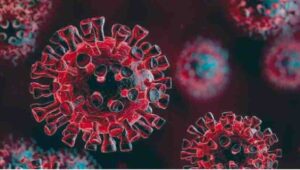Dakar – Tens of thousands of patients in Senegal suffer from excruciating pain every year without relief, Human Rights Watch said in a report released today. Unnecessarily restrictive government regulations and poor training for healthcare workers impede their effective medical treatment.The 85-page report, “Abandoned in Agony: Cancer and the Struggle for Pain Treatment in Senegal,” found that 70,000 Senegalese each year need what is known as palliative care to control symptoms related to chronic, life-threatening diseases. Morphine is an essential and inexpensive medication for treatment of severe pain, but Senegal only imports about one kilogram of morphine each year – enough to treat about 200 cancer patients. Human Rights Watch also found that morphine is unavailable outside of Dakar, Senegal’s capital. Frequent shortages limit access to the medication in the capital as well.
“Many thousands of cancer patients and other Senegalese suffer unnecessary agony because they can’t get morphine to treat their pain,” said Angela Chung, health and human rights fellow at Human Rights Watch. “Senegalese officials should ask themselves whether they would want their own parents or children – or themselves – to suffer such pain when there is a cheap and effective way to relieve it.”
Human Rights Watch interviewed more than 170 patients, family members, medical personnel, and officials about the problem. Many patients said they were in too much pain even to be interviewed.
“I am in pain 24 hours a day,” said a 47-year-old man in Dakar who has prostate cancer and suffers during morphine shortages. “You cannot believe the pain I have all over my body. It is in my bones. I cannot have a real life without my medication. I try to bear the pain for 2 or 3 days, and when I cannot handle it I will take one pill … I went to all the pharmacies and they do not sell it.”
Severe pain and other debilitating symptoms are common among patients with cancer, HIV, and other life-threatening diseases, particularly during the later stages. Non-communicable diseases, such as cancer, heart and lung disease, and diabetes account for about 30 percent of deaths in Senegal. Cancer, which is often diagnosed late in Senegal, kills more Senegalese than HIV/AIDS, tuberculosis, and malaria combined.
Morphine is an essential and inexpensive medication for treatment of severe pain, but Senegal only imports about one kilogram of morphine each year, enough to treat about 200 cancer patients. – Human Rights Watch



